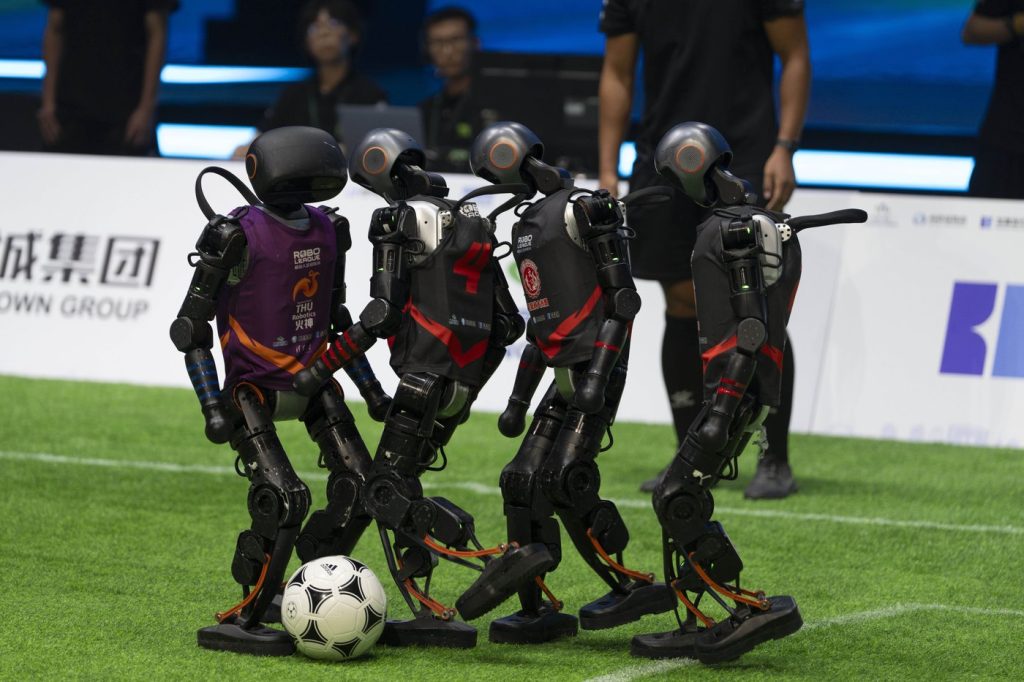BEIJING (AP) - In recent years, China's men's soccer team has struggled to capture the public's imagination. In stark contrast, a group of humanoid robot teams has garnered significant attention in Beijing, driven more by the advanced AI technology behind them than by any athletic skill exhibited. On Saturday night, four teams of humanoid robots participated in fully autonomous 3-on-3 soccer matches in China's capital, marking a milestone that was described as a first for the country. This event served not only as entertainment but also as a preview for the upcoming World Humanoid Robot Games, set to take place in Beijing.
The matches, organized with a focus on autonomy, showcased robots that operated entirely on AI-driven strategies without any human intervention or supervision. Equipped with advanced visual sensors, these robots were designed to identify the ball and maneuver across the field with remarkable agility. An interesting feature of the robots was their ability to stand back up after falling. However, during the game, several robots required assistance and were carried off the field on stretchers by staff, enhancing the overall realism of the competition.
Recognizing the significance of AI in developing humanoid robots, China is ramping up its initiatives in this field. Competitions like marathons, boxing, and soccer are considered effective arenas for validating real-world applications of these advanced robots. Cheng Hao, the founder and CEO of Booster Robotics— the company that supplied the robotic athletes— emphasized the importance of sports competitions as optimal testing grounds for humanoid robots. He noted that these environments help accelerate the development of both the algorithms necessary for operation and the integrated hardware-software systems.
As safety remains a critical concern in humanoid robot applications, Cheng mentioned future aspirations to see robots compete against humans in friendly matches where the outcome isn't the priority. Instead, these interactions would focus on building trust between audiences and robots, ultimately reassuring them of the robots' safety during such sporting events.
For the tournament, Booster Robotics provided the hardware for all four participating university teams, while each team's research group was responsible for developing and embedding its own algorithms for key game strategies. These included perception, decision-making, player formations, and passing mechanics, taking into account various factors such as speed, force, and direction, according to Cheng.
In the championship match, Tsinghua University's THU Robotics team triumphed over the China Agricultural University's Mountain Sea team, winning with a score of 5-3. Mr. Wu, a supporter of Tsinghua University, celebrated the team’s victory while also commending the efforts of the Mountain Sea team, highlighting the impressive surprises they delivered during the competition.
Despite the excitement surrounding this technological advancement and competition, it’s noteworthy that China's men's soccer team has historically been less successful, having managed only one appearance in the FIFA World Cup. Furthermore, they have already been eliminated from participation in the upcoming World Cup, which will take place across Canada, Mexico, and the United States.










